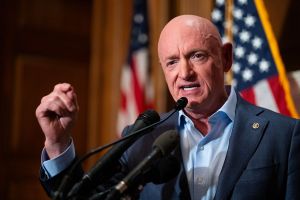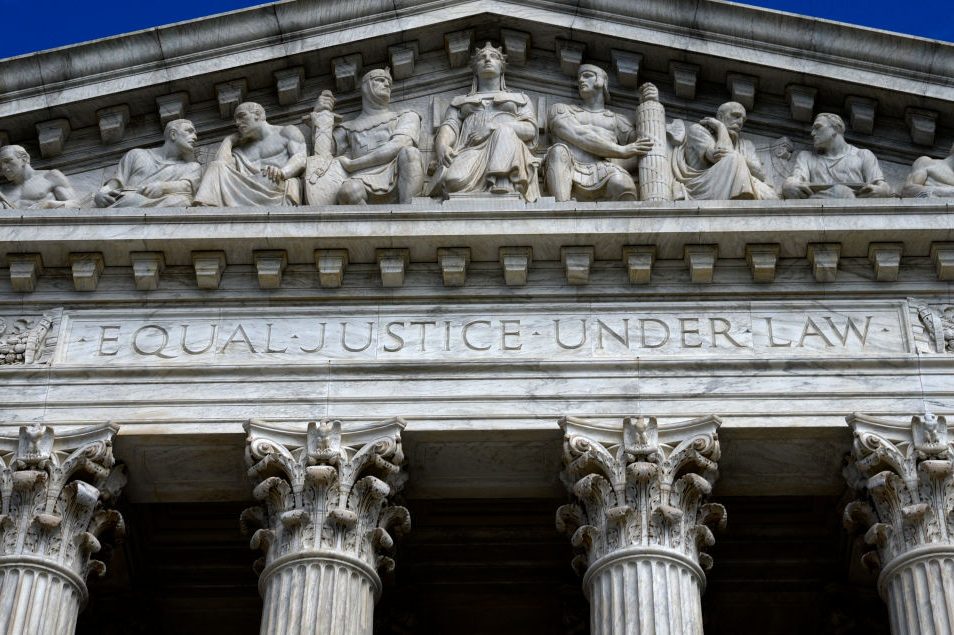Lies, in many cases, are comparable to sparks. They might not be very dangerous in and of themselves but under the right conditions — or, perhaps, the wrong conditions — they can lead to spectacular fires.
Consider, for example, how a chain of events that began with an anonymous message being posted on an obscure message board in October 2017 led, four years later, to hundreds of Americans gathering in Dallas, Texas, to await the return of the long dead JFK Jr.
Back in October 2017, someone calling themselves “Q” began posting bizarre messages on the /pol/ board of the notorious website 4Chan. Q, claiming to have high level White House security clearance, spoke of “the Storm,” an event in which President Trump and his allies would arrest hundreds of his rivals and expose them as child-eating Luciferians. Somehow, this event failed to transpire.
In fact, Q had something of a talent for failed predictions. He, and his followers in the colorful pro-Trump movement that we know as “QAnon,” predicted the arrests of everyone from Hillary Clinton to Tom Hanks, all of whom have remained conspicuously free. They predicted that Donald Trump would be inaugurated, which, somehow, has failed to happen.
In an insightful 2018 essay, Michael Barkun, an American political scientist, predicted that “the less heavily invested [Qanon believers] will eventually drop away” but that “a core group will remain, even in the face of predictions or prophecies that simply didn’t happen.” When it comes to true believers, Barkun wrote:
the belief is likely to be one around which they have structured their view of the world. That certainly was the case with QAnon’s predictions. This was to be the final battle between the virtuous forces of Trump and his allies against the quintessential evil of the deep state, after whose defeat some final quasi-paradise would presumably emerge. When that kind of prediction goes wrong, it carries a lot of potential psychological damage with it.
Many Q believers have drifted away. Firstly, and perhaps most significantly, a concerted attempt by Big Tech to stamp out the movement, which entailed the banning of hundreds of accounts from Facebook, Twitter and elsewhere, has limited its reach. An approving report from the Atlantic Council found that in the aftermath of this campaign, QAnon advocacy “all but evaporated from the mainstream Internet.”
But I think Q would have many lost adherents anyway. Other causes have attracted more marginal followers, such as campaigns against vaccine mandates and critical race theory. A Republican comeback, vividly manifested in Glenn Youngkin’s triumph in Virginia, has also given American rightists optimism, with less need to seek grandiose rationalizations of failure.
Even Ron Watkins, the shadowy administrator of the 4Chan spin-off 8Chan, who appeared to make an accidental admission to posting as Q in a recent documentary, said after President Biden’s inauguration that it was time to “go back to our lives as best we are able.”
But a core group remains. Many of them have invested thousands of hours and dollars, and alienated friends and relatives, in furthering their cause. Their imaginative framework is built around the movement. So even though Q himself apparently advised them in 2018 that JFK Jr was not alive and thus had no chance of returning to endorse Donald Trump, hundreds of hardcore Q believers gathered in Dallas to welcome him, speculating, allegedly, that other dead celebrities like Robin Williams and Kobe Bryant would also join this eccentric entourage.
It is easy to laugh, but it is also too easy, not because there is anything credible in these beliefs but because scorn, for true believers, can become a badge of honor. Oh, I’m crazy? Or is everyone crazy? Everyone has heard the often misattributed quote “First they ignore you, then they laugh at you, then they fight you, then you win.” Fewer reflect that people might laugh at you for good reasons.
The marginalization of QAnon has led to division. Some think the JFK Jr stuff is a bizarre distraction (and it takes a lot for QAnon believers to think that). Others, under the guidance of a man named Michael Brian Protzman, aka “Negative48,” think it is just the beginning. They have been employing half-baked numerology to predict the resurrection of JFK himself. Yes, JFK is basically Christ and Trump is the Holy Spirit foreshadowing his return.
As if this was not enough, these Q-inspired numerologists — Q-merologists? — are enriching their millenarian beliefs with speculations about ancient bloodlines. According to another QAnon guru — Quru? — “Whiplash347,” JFK, Abraham Lincoln, Elvis Presley and Julian Assange are descended from the Arabic minority the Druze, who, according to QAnon lore, are the “real Jews.” You can see the direction that could go in.
Within a few years, then, a theory that posited a clash between Donald Trump and the Deep State has spiraled into an ornate, intricate fantasy about a clash between the soldiers of God and the forces of the Devil.
Where does it end? You’d hope not with Q believers doing a great deal of harm to themselves and others — but if they are prepared to swallow as much as they have done, no one should be confident that they would reject the murderous or self-destructive claims of a modern Jim Jones or Marshall Applewhite. More peripheral believers could hop out of the rabbit hole without having a lot of dirt attached to themselves. The minority of people who are prepared to accept that JFK will return to represent the noble Druze bloodline, on the other hand, have gone so deep into the dark that they can dig.
The moral of this story is to base your beliefs on truth. If you start with an element of sheer fantasy, you can expect it to mutate and expand out of control.
Anyway, I have to dash. I’m interviewing Kurt Cobain about his little known Levantine heritage.

























